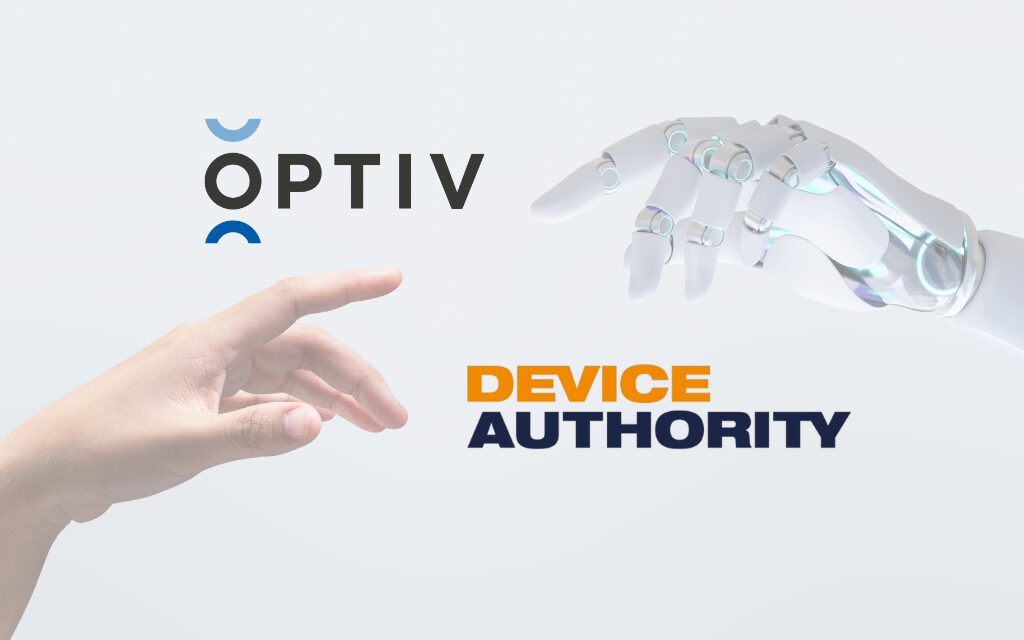Resources
Resources
Stay up to date with the latest news, opinions and free resources from Device Authority.
From company announcements, expert opinion on the latest IoT security issues or helpful guides to support your own organization, use our filters below to find the resources most useful for you.

Building Policy-Based Trust Anchors at the Edge
Why device identity during manufacturing and onboarding is the foundation of Zero Trust security

H-ISAC EMEA – 14th -16th October, Rome
Health-ISAC’s mission in Europe is to foster a connected community and forum that centers on the regional cyber and physical threats to the health sector within the European regulatory landscape. Health-ISAC is a founding member of the European Council of ISACs and, through collaboration and awareness, aims to strengthen the physical and cyber security and resilience of critical infrastructure—particularly patient care—in Europe.

The Benefits of OEM-Owned KMS for Connected Vehicles
As connected and software-defined vehicles become the norm, automotive OEMs face growing cybersecurity, compliance, and supply chain challenges. The Benefits of OEM-Owned Key Management Systems for Connected Vehicles explains why centralized cryptographic control is essential—highlighting the regulatory risks of supplier-managed systems, the operational and financial advantages of Device Authority’s KeyScaler platform, and a proven path to compliance with UNECE WP.29, the EU Cyber Resilience Act, and more. Download the paper to see how OEMs can protect their brand, streamline compliance, and unlock a rapid ROI while future-proofing vehicle security.

Jaguar Land Rover Cyberattack: Why IoT Identity and Access Management is Mission Critical
The recent cyberattack on Jaguar Land Rover (JLR), which forced factory closures and disrupted production, is another reminder of how vulnerable connected industries have become. Modern automotive and manufacturing operations rely on networks of connected devices, from robotic arms on the production line to electronic control units (ECUs) inside vehicles. When security breaks down, the consequences quickly ripple across operations, supply chains, and customers.

Technical Market Insight Guide
Our new IoT Technical Market Insight Guide 2025 is here. It explores how organizations can tackle the growing challenges of managing human, machine, and IoT identities in a Zero Trust world. The guide dives into KeyScaler’s architecture, core capabilities, and integrations, covering automated device provisioning, PKI for IoT, SBOM-driven threat validation, policy-driven encryption, PAM for IoT, and more. Whether deployed at the edge, on-premises, or via KSaaS, it provides a blueprint for securing IoT at scale with automation and continuous assurance.

Webinar – Regulatory-Ready Smart Equipment Development

Device Authority Announces Partnership with Optiv to Strengthen IoT and OT Security with Identity-First Approach
Device Authority, a global leader in automated IoT identity security, today announced a strategic partnership with Optiv, the cyber advisory and solutions leader, to help enterprises secure their IoT and OT environments against identity-based attacks.

Securing the Battleground: Moving Beyond Legacy Barriers to Zero Trust for IoT and OT IAM
Identity and Access Management (IAM) is rapidly emerging as the next battleground in industrial cybersecurity. As connectivity increases in operational technology (OT) and IoT environments, the complexity of securing machine and human identities grows. Legacy systems, cultural resistance, and the tension between uptime and security controls make IAM adoption a major challenge for operators.
At Device Authority, we believe IAM must evolve from a secondary consideration to the foundation of cyber resilience. With NIST frameworks, CISA guidance, and the EU Cyber Resilience Act driving change, identity-centric security is no longer optional. It is essential.

Automated IoT Lifecycle Security: Protecting Devices With Automated Lifecycle Management
The number of connected devices worldwide is projected to surpass 29 billion by 2030. From healthcare IoT and industrial OT to smart vehicles and critical infrastructure, these devices are now central to operations and innovation. The rapid evolution of IoT technology and its widespread adoption across industries have introduced new opportunities, but also new risks.

